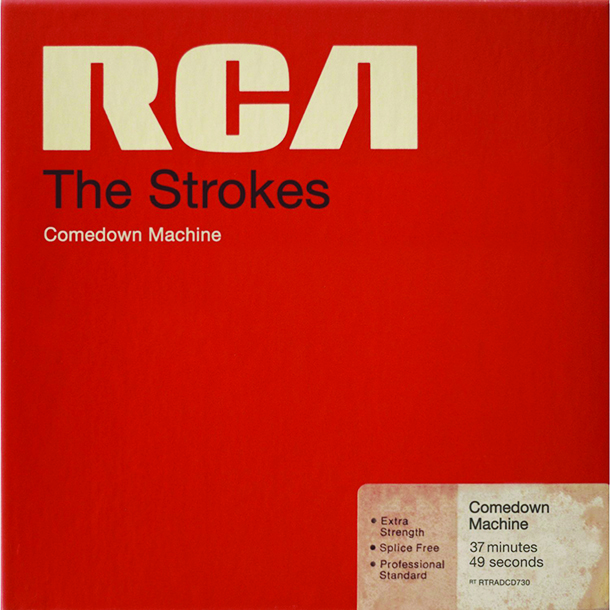
It would be easy to criticize The Strokes for not sticking to the ga- rage rock sound they pioneered in the early 2000s, but that criticism only sticks if one assumes they haven’t been getting any better. The band’s fifth studio album, “Comedown Machine,” proves that idea wrong. With 11 polished tracks featuring an eclectic variety of influences and styles, “Comedown Machine” is the album this band has been working toward their entire career.
The record opens with “Tap Out” and “All the Time” — two tracks that are most reminiscent of vintage Strokes appeal but with the addition of falsetto vocals and abundant synths.
“Welcome to Japan” pays homage to the band’s favorite country to tour with a psychedelic rock vibe and nonsensical lyrics such as, “I didn’t want to notice/I didn’t know the gun loaded/Didn’t really know this/What kind of asshole drives a Lotus?”
The title track features a melody that calls to mind guitarist Albert Hammond Jr.’s solo efforts and wouldn’t be out of place on the soundtrack of a Sundance film. The album’s standout track, “Call it Fate, Call it Karma,” is also its biggest surprise. The song ends the record with an eerily stunning waltz that sounds as if it’s from a different era. With a piano-laden melody and distantly haunting vocals from lead singer Julian Casablancas, the track proves that The Strokes have the skills to tackle any genre.
Casablancas offers more versatility with his voice on the record, ranging from a slippery falsetto on “Partners in Crime” to a hoarse growl on the Iggy Pop-esque “50/50.” The result is both disorienting and captivating, and it blends smoothly with the background of sub- dued drums, steady bass and frenetic guitars.
Like “Angles,” “Comedown Machine” features a large number of seemingly clashing influences, though this time they blend together seamlessly for an entirely new yet still quintessential Strokes sound.
No other band has been able to explore their sound as thoroughly as The Strokes have while still holding on to that raw style that characterized their iconic first album. It’s far better for a band to experiment with new influences regardless of the results than for it to rehash the same albums over and over. And while one might still yearn for the days of trashing Letterman’s studio and lovingly kissing onstage, it’s time to face facts: The Strokes have grown up.
A version of this article appeared in the Tuesday, March 26 print edition. Alexandria Ethridge is music editor. Email her at [email protected].






















































































































































